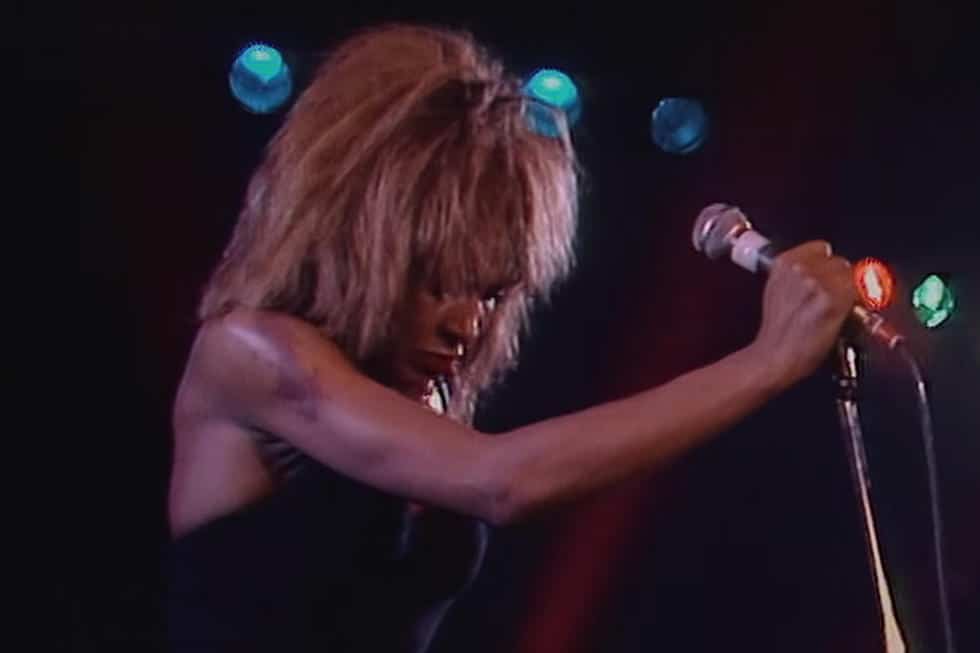Read also:
How to Watch FX Live Without CableHow To Watch AMC Without CableHow to Watch ABC Without CableHow to Watch Paramount Network Without CableThe first feature-length documentary dedicated to Tina Turner leaves out too much to be truly engaging.
“This film, and the musical, are a kind of closure” says executive producer Erwin Bach, who’s also partner to Tina Turner for over three decades. The music icon has, in many ways, been asked to tell the same story over and over again. Even when Turner attempted to silence the nagging questions by “journalists” about the abuse in her past by writing a biography (the now infamous I, Tina), the story of her life remained outside of her control.
Directors Daniel Lindsay and T.J Martin attempt to bring an end to the unceasing cycle of questions with their new documentary, Tina. Featuring new private interviews with Turner and those closest to her, along with a stunning array of archival footage, this is the definitive documentary on the pop and soul legend. Most of her, anyway.
The most brilliant thing Lindsay and Martin do with their documentary is underscore just how much of our public idea of Turner is Tina: The Survivor. Though Turner recognizes the usefulness and effectiveness of her image for other survivors of domestic abuse, always being asked questions about her abuse has clearly left her depressed and unable to heal. It’s a highly effective metanarrative. As the documentary continually returns to the continual return of questions from the media, we get a really clear sense of how tiresome and painful it must have been for Turner to be the poster child for survival in a world obsessed with melodrama.
Yet, as the film moves from telling her story, to the story of Tina telling her story, and then Turner dealing with telling her story, we realize that the documentarians don’t have enough time to do what it appears they really want to do, which is tell a different story of Tina Turner.
Instead, the first half of the film is spent covering the story it’s told us from the beginning that we already know. Yes, the archival footage is stunning. We get to see new evidence of the raw, explosive, youthful energy that captured audiences in the first place. But we’ve all heard the story and/or seen What’s Love Got To Do With It. If the film’s central premise is that Tina is more than Tina Turner, formerly of Ike & Tina, then it would’ve been nice to have started where Lindsay and Martin end their film, with Tina free and falling in love, and follow from there.
We get a really clear sense of how tiresome and painful it must have been for Turner to be the poster child for survival in a world obsessed with melodrama.
Just like the Whitney (2018) documentary before it, Tina begins with the intention of teaching us how to better appreciate its subject only to get caught up in the same drama it set out to avoid. As a result, we learn little else. There’s no real delving into her musicianship and development of sound/style during her solo years. The years in between Ike and the Private Dancer album seem rife with explorations of LA cabaret scenes, how TV became instrumental in crafting celebrity stories/careers, and how Tina was discovering what it meant to be herself at that time.
Indeed the discussions of Tina’s music largely take a backseat. Her later albums are unremarked upon. I want to know how and why Wildest Dreams sounds like it does. Does she have nothing to say about recording an iconic Bond theme? We learn nothing about how to better listen to Tina. No musical collaborators appear to talk about being with Tina in the studio/on set.
This is a woman who toured and performed with the greats yet we hear nothing about how Tina fits within mutual exchanges of inspiration happening across the pond in the 70s and 80s. She’s “the woman who taught Mick Jagger how to dance” yet we never hear that story or what it means for us. How does Tommy fit into the story of freedom in Europe she talks about in the documentary? We never learn why she settled in Europe and relinquished her American citizenship.

Most of all I wish we could have understood more of how love has changed Tina’s life. There’s zero mention of how it saved her life. There was such a persistent void of love in her early life that an exploration of how Erwin Bach changed her and how love affected what she sang about or how she sang it. How did her Buddhist faith practice evolve once she found the love she’d been searching for? That questions like these still linger shows that there’s not enough follow through with some of the other big motifs Lindsay and Martin set out at the beginning.
That Tina Turner was able to reclaim, reinvent, and reassert herself as a Black woman in her 40s is truly remarkable and worth a 2-hr documentary on its own. But sadly directors Lindsay and Martin shy away from all the words that make that a remarkable feat. Without more complex and engaged looks at how gender, race, and historical currents shape a performer, documentaries like Tina barely scratch the surface of what makes women like Tina Turner iconic.
Tina will always be a survivor, that will never change. With this documentary, we had a moment to tell the second half of her life and came up short. By spending more time telling us why the question is important, Lindsay and Martin devastatingly fail to answer the question they posit is at the heart of Tina’s story: what’s love got to do with it?
Tina premieres on HBO Max March 27th.